

WHAT IS THE TRAVEL SUSTAINABLE PROGRAM BY BOOKING.COM?
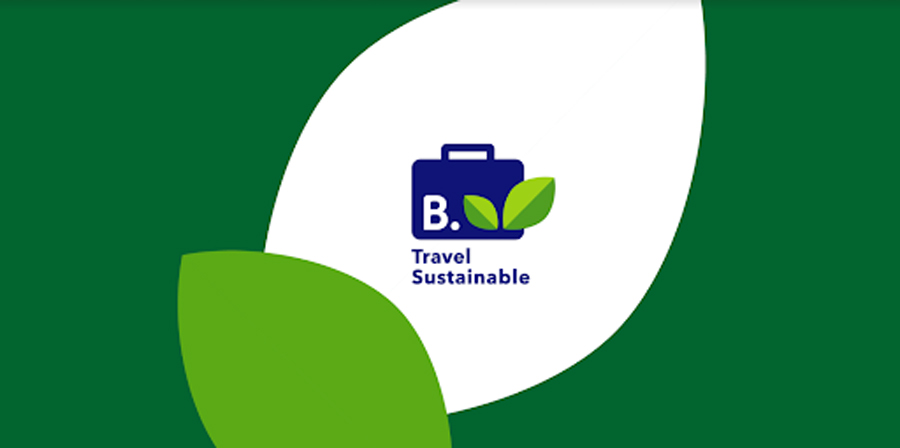
As arguably the world’s leading Online Travel Agent, Booking.com has realized that they are in a unique position to be able to make a difference to the troubling statistics associated with tourism and travel. They work with millions of accommodation partners around the world. While they do not own the properties themselves, Booking.com provides information for travellers to find a place to stay.
Booking.com has stated that they believe they share in the responsibility to help the travel industry tackle its emissions. From the Travel Sustainable Reports which they undertake every year, the OTA has established that more needs to be done to make sustainable travel easier – and sustainable accommodation easier to find. Among the travellers who hadn’t stayed in a sustainable accommodation over the past year, 31% said they didn’t know they existed and 29% said they still didn’t know how to find them.
The good news is that demand for sustainable accommodation is growing year on year. The Sustainable Travel Report by Booking.com found that in 2022:
– 71% of global travellers expressed a desire to travel more sustainably over the coming 12 months
– 70% of global travellers say they’d be more likely to choose a sustainable accommodation, regardless of whether they were looking for one or not
– 78% of global travellers intend to stay in a sustainable property at least once in the coming year.
Update: There have been changes to the Travel Sustainable program as from March 2024.
You can read more about these changes here…

THE BOOKING.COM TRAVEL SUSTAINABLE PROGRAM
Booking.com began developing the Travel Sustainable program in 2019. Working with sustainability consultancy Sustainalize, (now ERM), they designed a list of sustainability initiatives which they hoped any type of accommodation could implement that were both impactful and practical.
They spanned five separate categories:
3. Greenhouse gas emissions
4. Environmental protection
5. Community support.
This was benchmarked against the attributes already considered by 3rd-party sustainability certifications, like those of the Global Sustainable Tourism Council (GSTC), Green Key and EU Ecolabel , which is considered to be the gold standard in the travel industry.
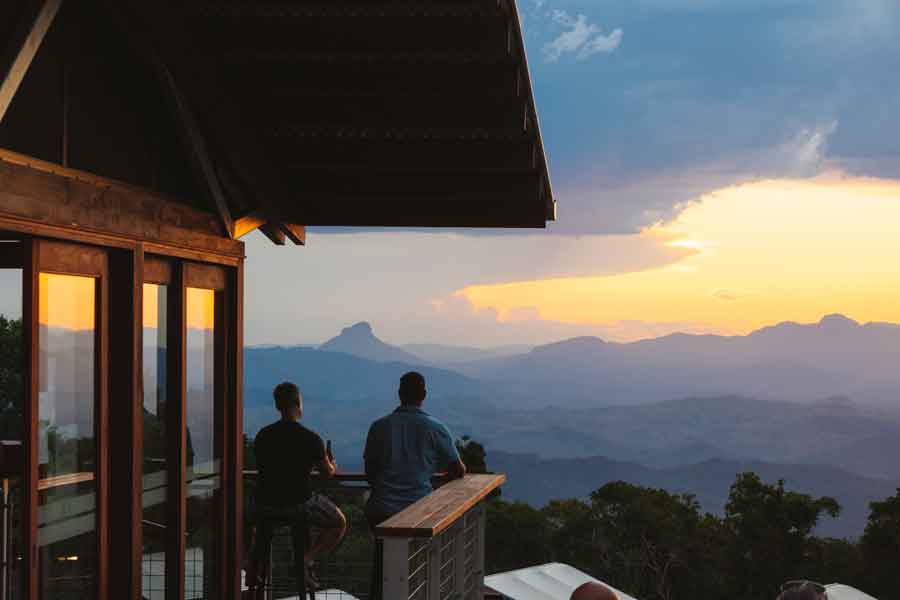
THE TRAVEL SUSTAINABLE LEVELS
In November 2022, Booking.com launched new levels for their Travel Sustainable badge. Each level built on the next, starting at a basic level of sustainability implementation all the way up to 3rd-party certified, which they saw as crucial in both encouraging partners to continue on their pathways and recognising the outstanding commitment and investment of those partners who had achieved one of more than 40 certifications or ecolabels.
The Travel Sustainable Levels were designed to better recognize and support the efforts and investments on a property’s sustainability journey – whatever stage they may be at.
While all eligible partners received the same badge, Booking.com recognized each eligible partner’s sustainability efforts at one of three different levels, or, for those with eligible third-party certification, at a dedicated level.
What is the Booking.com Level 1?
The property has implemented some impactful sustainability practices
What is the Booking.com Level 2?
The property has made considerable investments and efforts to implement impactful sustainability practices
What is the Booking.com Level Travel Sustainable Program?
The property has made large investments and efforts to implement impactful sustainability practices
Level 3+ Certified
The property has made a strong commitment to sustainability by subscribing to one or more third-party certifications and making a significant difference in the reduction of their environmental impact.

WAS THE BOOKING.COM TRAVEL SUSTAINABLE PROGRAM A SUCCESS?
When Booking.com launched Travel Sustainable in 2021, there were less than a hundred thousand recognised properties. Now, more than 1.25 million accommodations globally have now shared at least some information about their sustainability practices.
This alone has brought attention to accommodation owners around the world that working towards sustainability is a worthwhile journey.
However, with the realization that many companies (not just accommodation) have been involved in greenwashing, Booking.com has made changes to the program as from March 2024 to only allow properties to display a sustainability icon if they have 3rd party certification.
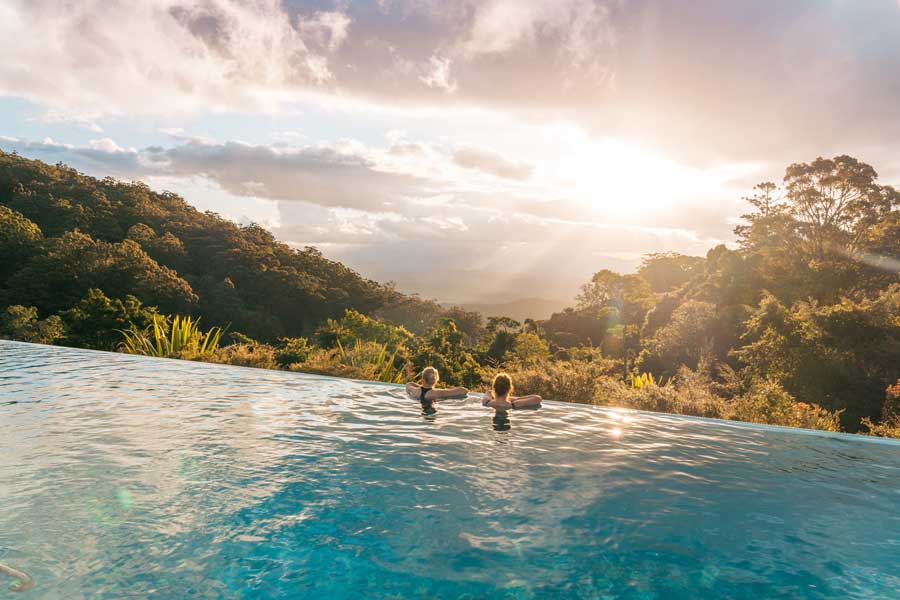
So how does it work? Is it possible to find a hotel option that is working to lessen its environmental impact via the Booking.com booking site? Try it and see….Just look for the Sustainability Certification filter on the left.
If you would like more information about improving the sustainability of your accommodation in Australia, you can also read about the Strive 4 Sustainability Scorecard from Ecotourism Australia here
This article has been based on information supplied by Booking.com and its Travel Sustainable Program. You can find more information about the program at the BOOKING.COM TRAVEL SUSTAINABLE HANDBOOK
Most images supplied courtesy of Queensland Tourism. Hotel image is courtesy of the Radisson Hotel, Sydney.
Author: Amanda Lambert February, 2024

Changes to the Booking.com Travel Sustainable Program 2024
From March 25 2024, Booking.com will instigate changes to the Travel Sustainable Program.
What is the Strive 4 Sustainability Scorecard?
The Scorecard aims to foster genuine, sustainable experiences for travellers while promoting sustainability within the tourism industry. The scorecard is not a certification or accreditation: it is a series of benchmarks for businesses to strive for sustainability, based on globally recognized criteria.
Best Glamping with Kids : The Ultimate List
Glamping with kids is a great way to inspire a love for the outdoors, while creating unforgettable bonding moments for the family beneath the stars around a firepit, or exploring nature trails together. Find the perfect glamping holiday for families!
Glamping Getaways in NSW
Looking for the best glamping spots in NSW? We’ve got you covered! Find your perfect safari tent getaway at the best prices, from the NSW South Coast, Mudgee, to Byron Bay. Find out more…..
Stay in a Dome
A stay in a dome or bubble tent is both a fascinating and surprisingly sustainable accommodation option. Find the best dome stays in Australia on Green Getaways. Hideaway Domes, Mirumiru Bubbletent, Domescapes in the Vines…
Best Glamping for Groups: Our Top Picks
Glamping for Groups in Australia. Check out our top ten picks for the best Group Glamping Getaways. Margaret River, Jervis Bay, Cockatoo Island, NSW South Coast, Noosa and more…
How to take the First Steps towards Sustainability in Tourism
For some accommodation owners, the idea of moving towards sustainability can seem a bit overwhelming at first, but the good news is that there are plenty of easy first practical steps you can take to make your accommodation more environmentally friendly.
Working Towards Sustainable Tourism Accommodation: First Steps
If you intend to take responsible tourism seriously, start with these few first steps…
Green Hospitality Resources – what to look for
If a product has lots of plastic packaging and packing, chances are the company is not really interested in being environmentally responsible.
Hotel Amenities – What you need to know
What denotes luxury to you when it comes to hospitality amenities? For international hotels, the meaning is changing…
Why do we need to change the way we travel?
While travel is one of the best things about life, it has proved to have unfortunate, negative consequences for the environment. The rise of mass tourism and cheap flights in the 1970s has given rise to overtourism, with once-pristine beach towns being transformed into concrete jungles. Cultural centres such as Venice in Italy have become almost unliveable for its residents, with pollution issues and strain on the local infrastructure.
Things have to change and there is growing concern in the tourism industry about its future. According to a report in Nature , the travel industry accounts for roughly 8% of the world’s total greenhouse gas (GHG) emissions. A third of the emissions related to travel come from the accommodation we stay in – an essential part of every trip.
As the world’s largest accommodation finder, Booking.com has stated that: “By now we all know the consequences of unchecked, unabated emissions. It’s the climate crisis we are all facing, right now. We must act now to preserve a world worth experiencing for everyone.”
” A third of the emissions related to travel come from the accommodation we stay in – an essential part of every trip.”

Privacy Overview

Press Releases
Travel sustainable program expands across booking holdings brands.
Delivering on Booking Holdings’ commitment to implement its first-of-its-kind program enterprise-wide, the expansion makes credible sustainability information available to more travelers across more platforms
NORWALK, CT – November 30, 2022 – Today, Booking Holdings, the world’s leading provider of online travel and related services, announced the expansion of its Travel Sustainable program to relevant brands across the Booking Holdings family. The news marks the company’s delivery on its commitment to launch its first-of-its-kind program for accommodations enterprise-wide by the end of 2023.
Travel Sustainable provides credible information on impactful sustainability efforts taken by properties worldwide and gives travelers a transparent, consistent and easy-to-understand way to identify a wider range of more sustainable stays, no matter where they want to travel. The aim of the program is to give visibility to accommodations that have made progress on a broad spectrum of sustainability efforts, from those at an earlier stage to those who have achieved one of more than 40 recognized ecolabels and certifications through outstanding commitments and investments. Pioneered by Booking.com, which recently marked the one year anniversary of the program, there are now more than 400,000 accommodations recognized globally by the Travel Sustainable program.
Recognized properties across Priceline, Agoda and KAYAK will now feature the Travel Sustainable badge in search results, with some platforms also implementing an additional filter to help travelers book more sustainable accommodations. The program across brands provides recognition for properties that are taking steps to operate more responsibly with regards to their impact on the environment and their local communities, while encouraging partners to continue making progress towards the goal of eventual third-party certification, which remains the gold standard in the industry.
The combined effort across the company’s brand product teams to bring the program to accomodations enterprise-wide through a cross-enterprise API is a signal of the potential for collaboration to drive greater sustainable impact across the travel industry by educating and empowering both partners and travelers to make sustainability a priority.
Furthermore, the milestone is a result of actions taken by Booking Holdings and its family of brands to deliver against key commitments outlined in the company’s Climate Action Plan, the first of its kind for any global online travel company, which was released earlier this year.
While accommodations are the first priority for the program, Booking Holdings will continue to evolve Travel Sustainable for transportation-related verticals to drive awareness of more sustainable options across more areas of a trip. Efforts include features live today like KAYAK’s CO2 sorter, which allows travelers to sort their flight search by CO2 emissions, and filters for electric and hybrid rental cars now live across Booking.com, KAYAK and Priceline where inventory is available, with further innovation to come by the end of 2023.
“Sustainability is a core component of our mission to make it easier for everyone to experience the world, and with this important step we are making progress towards ensuring there is always a world worth experiencing,” said Glenn Fogel, CEO, Booking Holdings. “We remain committed to making our vision for more sustainable travel a reality through the breadth of our sustainable travel offerings, the size of our impact, and the potential of transparent, inclusive standards development to spur change for the whole sector. Together, we are creating a lower-impact travel industry.”
About Booking Holdings Inc. Booking Holdings (NASDAQ: BKNG) is the world’s leading provider of online travel and related services, provided to consumers and local partners in more than 220 countries and territories through six primary consumer facing brands: Booking.com , Priceline , Agoda , Rentalcars.com , KAYAK and OpenTable . The mission of Booking Holdings is to make it easier for everyone to experience the world. For more information, visit BookingHoldings.com and follow us on Twitter @BookingHoldings .
Booking.com

- Tour Operators
- Destinations
- Hotels & Resorts
- Digital Edition Spring 2024
- Digital Edition Fall 2023
- Travel Webcast
- Agents' Choice Gala
- Suppliers Kit
- Canadian Travel Press
- Travel Courier
- Offshore Travel Magazine
- Culinary Travels
Taking Sustainable Travel To New Levels
November 16, 2022

Booking.com has unveiled an array of new product features in celebration of the one year anniversary of its Travel Sustainable program, introduced in 2021 to provide travellers with transparent and credible information to make more mindful choices for their trips.
With the ongoing aim to recognize the efforts of properties to operate more sustainably and to provide travellers with consistent and easy-to-understand information, the company is introducing three distinct badge levels to the Travel Sustainable program.
Aligned to the principle that reputable, third-party certification remains the gold standard in the industry, the new levels to the Travel Sustainable program provide even better visibility and recognition for currently uncertified properties that are taking steps to operate more responsibly with regards to their environmental and local community impact.
The levels help illustrate a clearer pathway for accommodations to work towards eventual certification, especially those that might be at an earlier stage in their sustainability journey. The aim is to also help encourage and incentivize more accommodations to continue making progress towards that goal.
For travellers, the new badge levels being introduced to Booking.com’s Travel Sustainable program have been designed to more clearly demonstrate a broader spectrum of where different accommodations stand on their individual sustainability journeys, as well as the specific measures they are implementing. The enhanced structure will also more clearly highlight those accommodations that have made outstanding commitments and investments on this front to achieve one of more than 40 recognized ecolabels and certifications.

The new badge levels for Travel Sustainable are as follows:
Level 1 — This new entry-level designation for the Travel Sustainable badge indicates that a property has implemented some impactful sustainability practices. This Level 1 badge will soon show up with one leaf and includes a full display of all practices that have been implemented.
Level 2 — Accommodations receiving the Level 2 version of the Travel Sustainable badge have made considerable investments and efforts to implement impactful sustainability practices. The Level 2 badge will soon show up with two leaves and includes a full display of all practices that have been implemented.
Level 3 — The Level 3 Travel Sustainable badge is reserved for those accommodations that have made large investments and efforts to implement impactful sustainability practices, but have not yet achieved an official third-party certification yet. The Level 3 badge will soon show up with three leaves and includes a full display of all practices that have been implemented.
Certified properties — Accommodations that have made huge commitments towards sustainability, including the additional effort and investment to achieve one of 40+ credible third-party certifications, receive the highest level of recognition as part of the Travel Sustainable program.
These accommodations are recognized with a certified badge, including the name of their certification. In addition to those certifications officially approved by the Global Sustainable Tourism Council (GSTC), Green Tourism and the EU Ecolabel, the list of third-party certifications automatically qualified for this highest level of the Travel Sustainable program now also includes Green Seal, Nordic Swan Ecolabel, Green Hospitality Ecolabel, Ibex Fairstay, Fair Trade Tourism, LEED and Edge.
With the introduction of these new levels, 400,000+ accommodations on Booking.com, including more than 3,000 in Canada, are now being recognized for their efforts to operate more sustainably.
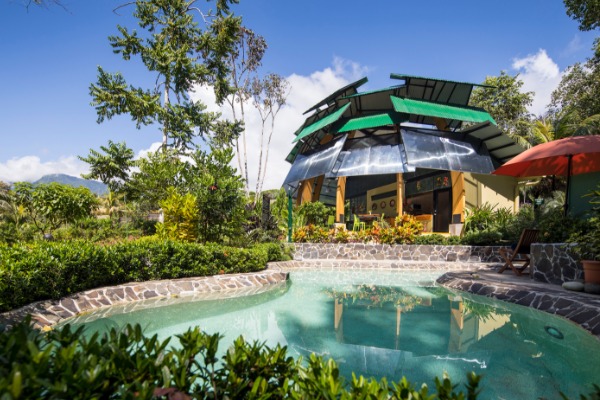
The new Travel Sustainable badge levels have already been introduced and communicated to Booking.com’s accommodation partners globally and will start to appear on the Booking.com website and app over the coming weeks, with refreshed visuals to clearly distinguish the new levels of the program.
A new search filter for fully electric and hybrid rental cars is now live across the Booking.com app and website, making it easier to find more sustainable ground transport options for your next road trip, with hybrid vehicles and fully electric options available in 60 countries. As more rental car providers around the world expand their fleets with these more sustainable alternatives, inventory and availability is expected to increase over the coming year.
As part of Booking.com’s new partnership with climate tech company CHOOOSE, carbon emissions data for accommodation bookings in Europe will be displayed for the first time on the platform in an effort to both understand where and how to present this information so it is useful for customers in their decision-making process. The aim is also to explore how to best integrate offsetting options as part of the booking process in an understandable and seamless way. The new features will first go live for accommodation options in Europe, with the intent to expand globally.
Similarly, together with CHOOOSE and in line with the aviation framework developed together with the Travalyst Coalition, Booking.com will also start providing information about the carbon emissions associated with flight options on the platform. The total carbon emissions footprint for a selected flight will start to be shown on the flight details page over the coming weeks. The option to sort flight searches based on this carbon emissions data will be introduced in 2023.
Danielle D’Silva, Head of Sustainability at Booking.com, said that: “As we optimize and develop our Travel Sustainable program further, our ambition is to continue making it easier for everyone to make more sustainable choices for their next trip.”
D’Silva continued: “We’re examining every part of the trip on our platform and actively looking for ways to provide more information to travellers in a credible and trusted way. Whether it’s an apartment for a weekend getaway, an electric car for their upcoming road trip or carbon emissions data about a flight, our aim is to nudge our customers and partners towards these more responsible options and do our part to ensure a healthier future for our planet and industry.”

WestJet & IAM reach tentative bargaining agreement
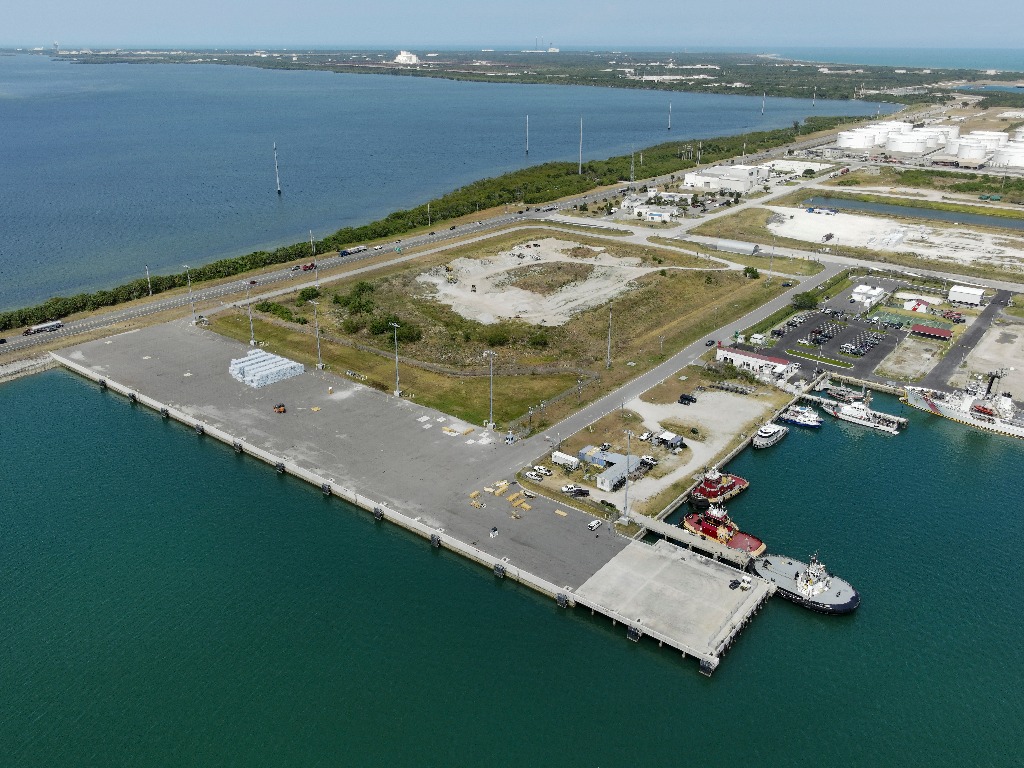
A new cruise terminal is coming to Port Canaveral
Committed to making it easier for travellers to book more sustainable trips
Travel sustainable programme launched for booking.com accommodations in 2021, launch programme for accommodations across relevant brands by the end of 2023, evolve programme to focus on third-party sustainability certification (in progress).
Sustainability is a core component of Booking.com’s mission to make it easier for everyone to experience the world, and over the past decade, we have been shaping our work in this space, most recently focusing on how we make more sustainable travel choices easier for everyone.
We believe that certifications and eco-labels represent the highest standard in terms of recognition of an accommodation's efforts towards operating more sustainably.
To date more than 1.4 million accommodation partners have shared their sustainability efforts with Booking.com, including 16,500+ with a recognised third-party sustainability certification – something we are incredibly proud of.
We are deeply focused on how we can make the best impact in the industry, constantly evaluating and learning, while working closely with independent experts and organisations, such as Travalyst, the Global Sustainable Tourism Council (GSTC) and UN Tourism, among others, to ensure our work is robust.

- GSTC Mission & Impacts
- GSTC History
- Market Access Program
- GSTC Board of Directors
- Assurance Panel
- Working Groups
- GSTC Sponsors
- GSTC Members
- Recruitment
- Contact GSTC
- GSTC For the Press
- Criteria Development, Feedback & Revisions
- Sustainable Tourism Glossary
- SDGs and GSTC Criteria
- GSTC Industry Criteria
- GSTC Destination Criteria
- GSTC MICE Criteria
- Criteria Translations
- GSTC-Recognized Standards for Hotels
- GSTC-Recognized Standards for Tour Operators
- GSTC-Recognized Standards for Destinations
- Recognition of Standards (for Standard Owners)
- GSTC-Committed
- Certification for Hotels
- Certification for Tour Operator
- Certification for Destination
- Accreditation for Certification Bodies
- Accredited Certification Bodies
- Stakeholder Consultations
- What is Certification? Accreditation? Recognition?
- Sustainable Tourism Training Program (STTP)
- Upcoming Courses
- Professional Certificate in Sustainable Tourism
- Professional Certificate in Sustainable Business Travel
- GSTC Trainers and Partners
- FAQs: GSTC Training Program
- Organization Membership Application
- Destination Membership Application
- Membership Policy
- Membership Categories & Fees
- Membership Payment Options
- Webinars for GSTC Members
- Members Log In
- Upcoming Webinars
- GSTC2024 Singapore, Nov 13-16
- Upcoming Conferences
- Past Conferences
- Destination Stewardship Report
Booking.com Launches Travel Sustainable Badge to Lead Industry in Showcasing a Wider Variety of Sustainable Stays

Booking.com features its Travel Sustainable Badge pages of accommodations that are certified by GSTC-Accredited Certification Bodies and accommodations verified to GSTC-Recognized Standards .
The badge is also available to any kind of property that on the platform that has implemented a combination of sustainable practices that meet the requisite impact threshold for their destination.
The goal of the badge is to provide travelers easy-to-understand way to identify a wider range of more sustainable stays, no matter where they want to travel.
Making sustainable travel choices easier for everyone
The company’s ambition, alongside the Travalyst Coalition in which Booking.com is a Founding Partner, is to create a universal and transparent measure for sustainable property information, across the industry. As such, this first version of the Booking.com Travel Sustainable badge leverages the first set of attributes validated by the Travalyst Independent Advisory Group . The badge focuses on highlighting practices that are most relevant to a broad range of property types, as well as their high-impact potential, whether it is an apartment in Amsterdam, a homestay in India or a resort along the Gold Coast in Australia.
Building off the credible standards for sustainable accommodation already in place, Booking.com has collaborated with industry experts, including through Booking.com’s leading role within the Travalyst Coalition and other industry experts, to identify a set of the most impactful practices for a property to consider in five key areas: waste, energy and greenhouse gases, water, supporting local communities and protecting nature. This foundational framework is currently further broken down into 32 specific sustainability measures or practices that properties can implement, including everything from eliminating single-use plastic toiletries or switching to LED light fixtures to running on 100% renewable energy sources or investing a certain percentage of profits into local community and conservation projects.
For each one of these practices, Booking.com has also worked with reputable sustainability consultancy Sustainalize to develop a robust methodology that assesses these practices’ relative weight in the model. As these weights fully depend on the environmental and/or social impact of the practices, the model is fit for purpose to identify partners that pursue meaningful sustainability efforts. The calculation also considers the property’s location and accounts for its size, improving the model’s accuracy and applicability among the large variety of Booking.com’s partners. All these calculations come together, with each practice being weighted accordingly and taking local factors into account, to create an overall score for the property’s sustainability practices. While the goal has been to create a universal model, operating sustainably means different things in different markets. For example, water-reducing measures in an area prone to drought or sourcing renewable energy options in a country where that’s not yet widely available are weighted as being more impactful. More detailed information on how individual properties around the world have achieved the badge is available in this updated section of the Travel Sustainable Handbook on the Booking.com Partner Hub.

“Booking.com have methodically developed, tested, and refined this method drawing from GSTC’s expertise and the globally-recognized GSTC Criteria ,” says GSTC CEO Randy Durband, “lending strong credibility to the framework that has been so carefully crafted.”
“Building a truly sustainable travel industry will take time, coordination and concerted effort, but progress is possible through continued innovation, partner support and industry collaboration,” said Marianne Gybels, Director of Sustainability at Booking.com. “With our Travel Sustainable badge and program, we are recognizing the sustainability efforts of a broader range of properties around the world in a credible and transparent way for consumers. In addition to encouraging properties to strive towards achieving the Travel Sustainable badge, we believe it’s important to demonstrate that there is a spectrum for sustainability and that there is value in showcasing the growing number of properties that are at various stages on their individual sustainability journeys. Displaying the practices they have in place makes it easier for everyone to make a more informed and hopefully more sustainable choice for their next trip, no matter where they want to go. Thus also inspiring even more of our partners to take the next step to operate more sustainably.”
Accelerating the sustainability journey

In addition, considering that 81% of global travelers state they want to stay in a sustainable accommodation in the upcoming year and with more than 28 million listings on Booking.com, the company sees a tremendous opportunity to showcase more of the impactful efforts its accommodation partners are taking on their important journeys to create more sustainable experiences, and in turn, make it easier for travelers to find a sustainable way to stay. The Travel Sustainable badge is also a concrete response to the more than two-thirds (67%) of travelers who expect the industry to offer more sustainable options. And with three-quarters (73%) indicating that they would be more likely to choose a specific accommodation if they knew it was implementing sustainable practices, the Travel Sustainable badge and program helps reward and further encourage all accommodation providers to take the next steps on their individual sustainability journeys, ultimately increasing the overall amount of sustainable accommodation options available.

The list of measurable sustainability practices will continue to evolve and expand over the coming months, becoming increasingly locally relevant in terms of measurement, while maintaining a necessary level of global consistency. As additional practices are added over time, the plan is to also begin aligning this sustainability initiative with other Booking Holdings brands, as well as with other Travalyst coalition partners to ensure consistency across multiple platforms and enhanced sustainable choice for consumers.
As part of the Travel Sustainable program, Booking.com continues to share guidance, insights and best practices with property partners via various educational opportunities, including handbooks and dedicated content on the Booking.com Partner Hub . For more information on sustainability at Booking.com, please visit sustainability.booking.com .
Clarification from the GSTC
Booking.com’s phrase about “over 30 certifications officially approved by the Global Sustainable Tourism Council (GSTC)” refers to accommodations certified by GSTC-Accredited Certification Bodies and accommodations verified to GSTC-Recognized Standards by the Standard Owners.
Sustainability certification for accommodations is a voluntary, third-party assessment through an audit to ensure compliance with sustainable tourism standards. GSTC does not certify directly. Certification is conducted by Certification Bodies (CB) while GSTC provides an accreditation program through its partner Assurance Services International to accredit Certification Bodies. Those accommodations certified by a GSTC-Accredited Certification Body can use the GSTC logo along with the Certification Body’s mark. They are also shared with OTAs and other buyers of hotel space. Learn more about how to become certified as a sustainable accommodation .
GSTC Recognition of Standards refers to the language of the standard itself. GSTC Accreditation of Certification Bodies verifies the certification process (how an accommodation received a certification). Learn more on the difference between certification of hotels, accreditation of certification bodies, and recognition of standards .
Share This Story, Choose Your Platform!
Related posts.

Destination Stewardship Yearbook 2022-2023

#GSTC2024Sweden Recordings Available Online
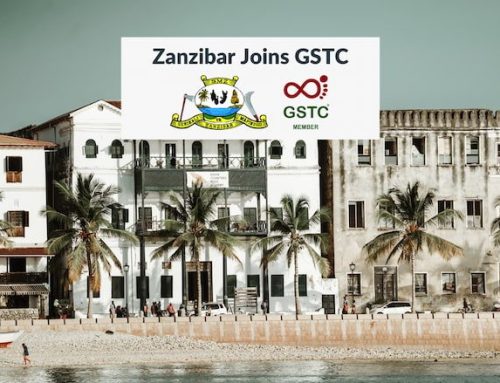
Zanzibar joins GSTC
- Influencers
- Health & Fitness
- Love & Relationships
- Herbalistics
- Entertainment
- Conscious Travel
- Trusted Travel
- Luxury Travel
- Real Estate
- HMG Creative Agency
- Work With Us

How To Travel Sustainably With Booking.com
Earth day just passed, so what better way to keep eco-conscious travel top of mind than with a sustainable stay, thanks to booking.com.

Earth Day recently passed, and with mindful travel on the rise, Booking.com is making it easy for individuals to make eco-conscious and sustainable travel choices. Thanks to Booking.com’s latest Sustainable Travel Report , the brand has discovered travelers’ sustainable needs, making it easier for travelers to find and book sustainable options that help support the local environment and community.
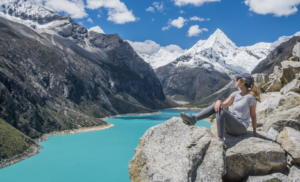
Sustainable Tourism and Travel
Sustainable travel and tourism are on the rise! According to an extensive sustainable travel research report conducted by Booking.com, it has been determined that 65% of Canadian travelers want to travel more sustainably over the coming 12 months.
Booking.com’s newly released research features insights that have been gathered from more than 33,000 travelers across 35 countries and territories. As a result, the findings have addressed a longstanding issue that centers around people feeling forced to choose between cutting costs and being more mindful about making sustainable travel choices.
Travel Sustainably with Booking.com
As a result of Booking.com’s newly garnered insights, 73% of Canadian travelers believe people need to act now and make more sustainable choices to save the planet for future generations. Sustainable travel and tourism is something that is weighing heavily on Canadians’ minds, with 70% of Canadian travelers confirming that traveling more sustainably is important to them. This notion, in connection with concerning news about climate change, has influenced travelers to make more sustainable travel choices moving forward.
Thanks to the Travel Sustainable Badge on Booking.com, 500,000+ accommodations globally are being recognized for their sustainability efforts. This is a super easy and effective tool travelers can use to ensure they are booking a sustainable stay- no matter the destination!
As well, the travel platform recently celebrated one year of Booking.com’s Travel Sustainable program. The best part? There are new features that have been put in place to ensure a seamless sustainable booking experience for all travelers.
For instance, travelers can now also find and book greener taxi options in 95 cities worldwide. This can be done by looking for the ‘100% Electric’ tag in the search results. As well, travelers can also compare the CO2 emissions of flights to determine if other airlines offer a lower emissions option. When it comes to public transport ticketing options, these are also available after making an accommodation booking in 47 cities worldwide.
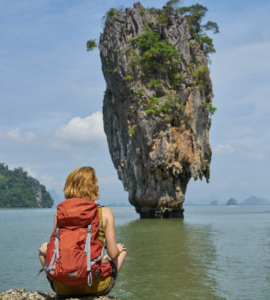
Sustainable Hotel Highlight – 1 Hotel Toronto
Looking for a sustainable stay in one of Canada’s most diverse cities?
1 Hotel is a sustainable luxury hotel that is located in the heart of downtown Toronto and features sustainable elements that truly make this a one-of-a-kind staycation. For instance, the space is designed by nature, and the hotel includes a farm-to-table in-house dining experience at 1Kitchen, as well as the ability to host sustainable gatherings for guests.

1Kitchen at 1 Hotel Toronto
The urban retreat uses meaningful materials as part of its design and includes an on-site garden that grows fresh herbs, fruits, lettuce, edible flowers, and more.

1 Hotel Accommodations
This stunning urban oasis is dedicated to providing guests with a remarkable stay upon taking your first steps into the lobby, which features a calming palette and lush greenery, offering guests a subtle escape from the bustling cityscape. From guilt-free indulgences to mindful moments and local partnerships, 1 Hotel Toronto is a sustainable sanctuary nestled in a lively city.
You can find more information regarding 1 Hotel’s ongoing sustainability mission and commitment here .
If you’re looking for some sustainable activities and attractions to add to your Toronto staycation itinerary, check out some go-to’s below:
Grape Witches : Partake in an organic wine tasting at Toronto’s very own Grape Witches! The space features a curated selection of natural wines you can purchase and enjoy (19+).
Evergreen Brick Works : Venture out of the city core to Evergreen Brick Works and experience a nature walk on the grounds’ beautiful trails, those of which offer uninterrupted views of Toronto’s iconic skyline. You can also book a tour to learn about how Evergreen reclaimed and revitalized the site, turning it into an environmental community center and green-technology showcase.
Published by HOLR Magazine.
Subscribe to HOLR Magazine
Comments are closed.

I verify that I am of age to view cannabis related content in my region.
- Share full article

How to Travel More Sustainably
Don’t skimp on doing your own research, and be aware that ‘green’ certificates aren’t always all they’re cracked up to be.
Credit... Gabriel Alcala
Supported by
By Paige McClanahan
- April 22, 2021
So you’re vaccinated and eager to — finally — plan a real summer vacation after a rough year, but you don’t want to add to the problems you might have read about: overcrowding, climate change, unfair working conditions in the tourism industry. What’s a thoughtful traveler to do?
For those who want to travel responsibly, it comes down to this: You, the traveler, have to do your homework.
Looking for a hotel or tour operator that has earned a sustainability label might seem like a good place to start, but the reality isn’t so simple. There are around 180 certification labels floating around in the tourism industry, each purporting to certify the green credentials of a hotel, restaurant, tour operator or even a destination. And while some of those labels are well enforced, others might better be described as greenwashing — when a company portrays itself as an environmental steward, but its actions don’t match the hype.
“The range is enormous — from rigorous, impartial and excellent to, frankly, poor,” said Randy Durband, the chief executive of the Global Sustainable Tourism Council , a nonprofit organization that establishes and manages global standards for sustainable travel. “We strongly believe in the value of third-party certification, when it’s done right,” Mr. Durband added. “But the way the word ‘certification’ is used in tourism is out of control.”
Still, while the labels might be all over the map, many businesses are waking up to the importance of improving their environmental and social performance, said Andrea Nicholas, the chief executive of Green Tourism , an Edinburgh-based certification body with more than 2,500 members. The pandemic has brought the concept of sustainable tourism forward by five to 10 years, she said. Before, she added, many businesses saw sustainability as an “add-on.”
“What we’re seeing now, from the interest we’re getting, is that it’s a must-have,” she said.
There are some promising signs that consumers, too, are waking up to the consequences of their vacations. More than two-thirds of respondents to a recent seven-country global survey for American Express Travel said that they “are trying to be more aware of sustainability-friendly travel brands to support.” Another poll, this one for the digital travel company Booking.com, found that 69 percent of the more than 20,000 respondents “expect the travel industry to offer more sustainable travel options.”
What does “sustainable travel” mean, anyway?
Given the diversity of destinations and contexts that a traveler might encounter, there’s no universal answer to what sustainable travel means. A hotel’s water efficiency is a lot more important along Spain’s dry Mediterranean coastline than in rain-soaked western Scotland, for instance.
But experts say that the concept is about a lot more than just reusing the towels in your hotel room or buying a carbon offset for your flight, although those are good places to start.
Sustainability is also about the wages and working conditions of the people who are waiting tables on your cruise ship or schlepping your bag up a trail; it’s about the additional pressure you might be putting on an already-crowded city , heritage site or natural area ; it’s about whether your hotel buys its produce from a farm down the road or from a supplier on the other side of the world, or whether the money you spend goes into the community you’re visiting — or into the distant account of a multinational.
“What you need to do is marry the corporate social responsibility with an informed tourist consumer who knows what they’re asking for, and then demands it,” said Freya Higgins-Desbiolles, an adjunct senior lecturer in tourism at the University of South Australia. She listed some questions that travelers should ask themselves before they take their next trip: How can I travel in an off-peak time? How can I go to places that aren’t overcrowded? How can I ensure that the money I spend ends up in the local economy?
Johannah Christensen, a nonprofit executive and longtime concerned traveler, says that she always looks for some sort of reliable certification when she books a block of hotel rooms for an annual professional event. The Green Key label — a certification program that is headquartered in Copenhagen, where Ms. Christensen lives — is one that she has used in the past, but she is always sure to do some digging on her own. (This 2016 guide to some of the major tourism certifications can be a good starting point.)
“You can look for those green check marks, but understand what’s implied in them,” she said. “What does the hotel actually have to do to earn it? Don’t be afraid to ask questions.”

How to do your homework
Asking questions — both while you’re traveling and, more important, before you book — is one of the most powerful things that travelers can do, said Gregory Miller, the executive director of the Washington, D.C.-based Center for Responsible Travel . He recommends people start by looking closely at the websites of the tour operators, hotels and destinations that they’re considering. If they don’t find any language about sustainability, “that should be a flag,” he said.
Beyond that, he suggests that travelers check his organization’s list of responsible travel tips , which include recommendations like hiring local guides, asking permission before taking photos of people, staying on designated trails in natural areas and thinking twice about handing out money to children. While they’re traveling, Dr. Miller said, people shouldn’t be afraid to ask difficult questions of their service providers, or to call out waste or abuse when they see it — whether directly to a manager or in an online review.
“Certification can be a tool in the toolbox, but don’t be limited by that,” Dr. Miller said. “It’s about choices, and travelers do have the choice.”
Susanne Etti, the environmental impact specialist at Intrepid Travel , a global tour operator based in Australia, had other tips for travelers. She said they could start by checking the list of the more than 230 travel organizations that have joined the Tourism Declares initiative, members of which have pledged to publish a climate action plan and cut their carbon emissions.
Another reliable indicator, she said, is whether a company has been classified as a “B Corporation” — a rigorous sustainability standard that’s not limited to the tourism industry. Her company, Intrepid, has achieved the distinction, as have the apparel company Patagonia and ice cream maker Ben & Jerry’s. The B Corporation website lists some three dozen companies in the “travel and leisure” sector — from a paddle sports company in Hawaii to an Ecuadorean tour bus operator. A number of other tourism businesses are listed under “hospitality,” including Taos Ski Valley and Orlando-based Legacy Vacation Resorts.
Dr. Etti also shared some of the advice that she follows in her own travels. “When you fly, make it count,” she said, adding that, before the pandemic, when she would travel from her current home in Australia to her native Germany, she would do the long-haul flight, but then choose trains or other less-polluting ways to get around Europe, even when cheap short-haul flights were readily available.
Dr. Etti also recommended that travelers learn to slow down. “Stay in one location longer,” she said, “to really understand how life works in that community.”
Rethinking what travel means
Many travelers also need a shift in mind-set, said Dominique Callimanopulos, the head of Elevate Destinations , an international tour operator based in Massachusetts that has won a number of awards for its commitment to sustainability. People should learn to see their travels as an opportunity for exchange with a host community rather than a simple consumer transaction. Ms. Callimanopulos said that even her sustainability-inclined clientele rarely do their homework: She has received more questions about the availability of hair dryers than about the company’s environmental or social practices.
“People can make a shift from thinking just about what their personal experience is going to be to looking at the impact of their experience on the ground, on the destination and on the community,” she said.
Lindblad Expeditions , which operates adventure cruises in destinations like Alaska, the Antarctic and the South Pacific, has also won awards for its approach to sustainability and for giving back to the communities it visits. Sven-Olof Lindblad, the company’s chief executive, said that he continues to see people spending up to $40,000 on an Antarctic cruise without doing any research on the practices of the company offering the trip.
“You wouldn’t just buy a car from an ad without understanding what it was and how it compared,” he said. “I’m absolutely amazed at how little diligence people sometimes do in relationship to travel.”
Mr. Lindblad recommended that, in addition to doing their own research, travelers could speak to a travel adviser or travel agent who can help them dig for answers that might not be readily available on a company’s website.
“When people choose to travel, they should really understand what they’re getting into,” he said, “because there’s a lot of smoke and mirrors in this business.”
Follow New York Times Travel on Instagram , Twitter and Facebook . And sign up for our weekly Travel Dispatch newsletter to receive expert tips on traveling smarter and inspiration for your next vacation. Dreaming up a future getaway or just armchair traveling? Check out our 52 Places list for 2021 .
Explore Our Style Coverage
The latest in fashion, trends, love and more..
Meet This Year’s Met Gala Co-Chairs: This year, Anna Wintour, Zendaya, Jennifer Lopez, Chris Hemsworth and Bad Bunny will head up the gala .
The Most ‘Unretired Retired Person’: The stylist Law Roach on his role as an “image architect,” being a diva and his master plan for what’s next.
Sofia Coppola’s Latest Release: Her tinted balm was inspired by products that the filmmaker confected as a girl to achieve the “berry-stained lips” of a character in a Roman Polanski movie.
The Man Who Drew New York : Jason Polan chronicled city life in thousands of sketches before he died at 37 in 2020. What happens to his legacy now?
Beyoncé’s Last Fashion Frontier: It’s now impossible to see a cowboy hat or pair of cowboy boots and not think of her.
Meet the Men Who Eat Meat: With the help of Joe Rogan, a social media trend with staying power emerged from a 2018 book, “The Carnivore Diet.”
Advertisement
Why Sustainable Travel Is Only Going to Get More Popular
According to a new survey, travelers are ready to explore the eco-friendly way. Here’s what people from around the world look for before packing their bags.
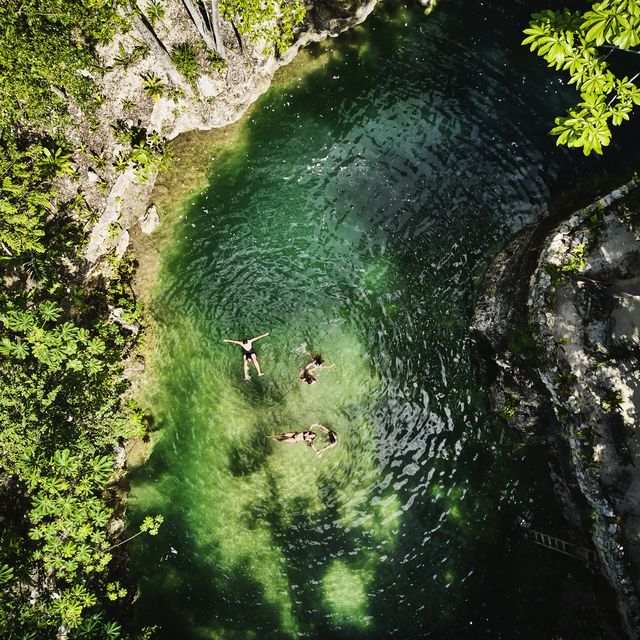
Every item on this page was chosen by a Veranda editor. We may earn commission on some of the items you choose to buy.
The sustainable travel market continues to grow—as does traveler interest in the topic, according to Booking.com’s 2023 Sustainable Travel Report . After surveying 33,228 travelers from 35 countries and territories, researchers from the trip booking website found that American travelers are increasingly making sustainable selections that impact several parts of their trips. At the same time, they’re requesting even more eco-friendly options from travel companies.
“While travel may be back [after pandemic-related restrictions], rising living costs and climate anxiety has led to greater demand for more budget and planet-friendly options,” said Glenn Fogel, CEO of Booking.com. “Travel can be a force for good and travelers themselves are proving to be today’s changemakers, adopting more sustainable travel habits and seeking responsible experiences. More sustainable travel is an investment for the world.”
These shifts have the potential to make a difference. According to the World Travel & Tourism Council , 8 to 11 percent of global carbon dioxide emissions are linked to travel and tourism (mostly due to the commute to and from the destination).
When considering sustainable travel, it’s not just about turning off the lights in the hotel room or reusing towels. (Although many folks do! More than six in 10 people reuse the same towel multiple times, up 28% from 2022, and 71 percent flip off the lights and appliances at accommodations when they aren’t around.) Survey participants say they’re also seeking authentic local experiences that give back—or at least don’t interrupt—the community’s culture.
About 37 percent of respondents prefer traveling outside of peak season to reduce the risk for overcrowding; up 12 percent from last year. And 42 percent of travelers put a keen focus on making purchases at small, independent stores to support the local economy. Sustainable souvenirs sound like the perfect way to keep the memories alive back home until you can budget for your next trip !
More than four in 10 U.S. travelers (44 percent) admit that recent climate change news has inspired them to integrate more sustainable practices overall—including during travels. As a result, 68 percent are leaning into “regenerative” travel practices that leave the places they visit better when they arrive.
Love to travel? Read these stories next:
- The 6 Biggest Luxury Travel Trends for 2023
- 8 Trip Upgrades That Are Always Worth the Splurge, According to Travel Pros
- The 11 Best Greek Islands to Visit in Your Lifetime, According to Travel Experts

The 21 Best Spa Weekend Getaways in the U.S.

How to Shop Eau Palm Beach's Lilly Pulitzer Suite
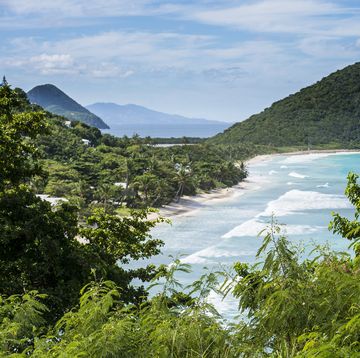
Take an Eco-Tour Through the BVI
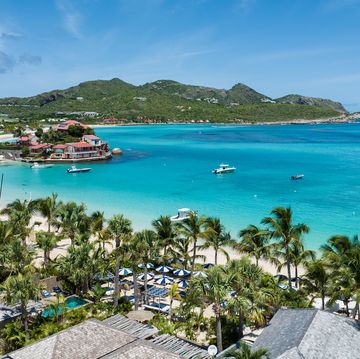
How to Spend a Perfect Weekend in St. Barts

15 Best Historic Homes to Visit in America

The 5 Best Nantucket Hotels

The 15 Best Hamptons Hotels

49 Museums You Need to Visit in Your Lifetime

The 8 Most Beautiful Gardens in France

Two Luxury Journeys That Immerse You in Nature
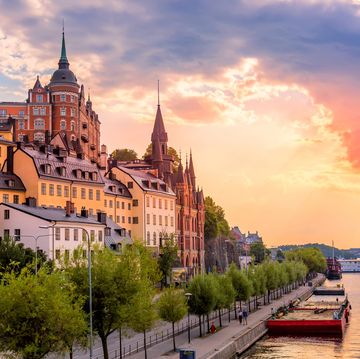
How to Spend a Perfect Weekend in Stockholm
National Geographic content straight to your inbox—sign up for our popular newsletters here

Coral reforestation helps restore desolated reefs around Landaa Giraavaru Island on Baa Atoll in the Republic of Maldives.
For travelers, sustainability is the word—but there are many definitions of it
Most people want to support sustainable tourism, even though the concept remains fuzzy.
The word “overtourism” is a relatively new term—but its novelty has not diminished the portent of its meaning: “An excessive number of tourist visits to a popular destination or attraction, resulting in damage to the local environment and historical sites and in poorer quality of life for residents,” according to the Oxford Dictionary .
As travel recovers from pandemic lows, travelers are once again experiencing the consequences of overtourism at enticing, but crowded, destinations. The UN World Tourism Organization, along with public and private sector partners, marks September 27 as World Tourism Day and uses this platform to discuss tourism’s social, political, economic, and environmental impacts.
This day highlights the importance of sustainable tourism —a framework for engaging travelers and the travel industry at large in supporting goals that include protecting the environment, addressing climate change, minimizing plastic consumption , and expanding economic development in communities affected by tourism.

Getting the facts
A National Geographic survey of 3,500 adults in the U.S. reveals strong support for sustainability. That’s the good news—but the challenge will be helping travelers take meaningful actions. According to the survey—which was conducted in 2019—while 42 percent of U.S. travelers would be willing to prioritize sustainable travel in the future, only 15 percent of these travelers are sufficiently familiar with what sustainable travel actually means.
( Learn about how to turn overtourism into sustainable global tourism .)
In the National Geographic survey, consumers most familiar with sustainable travel are young: 50 percent are 18 to 34 years old. Among travelers who understand the sustainable travel concept, 56 percent acknowledge travel has an impact on local communities and that it’s important to protect natural sites and cultural places.
The survey has informed National Geographic’s experiential travel and media businesses and sparked conversations for creating solutions around sustainability. Our travel content focuses on environmentally friendly practices, protecting cultural and natural heritage, providing social and economic benefits for local communities, and inspiring travelers to become conservation ambassadors. In short, we see every National Geographic traveler as a curious explorer who seeks to build an ethic of conserving all that makes a destination unique.
Building better practices
National Geographic Expeditions operates hundreds of trips each year, spanning all seven continents and more than 80 destinations. Rooted in the National Geographic Society ’s legacy of exploration, the company supports the Society's mission to inspire people to care about the planet by providing meaningful opportunities to explore it. Proceeds from all travel programs support the Society’s efforts to increase global understanding through exploration, education and scientific research.
National Geographic Expeditions offers a range of group travel experiences, including land expeditions, cruises, and active adventures, many of which take place around eco-lodges that are rigorously vetted for their sustainability practices.
These independent lodges incorporate innovative sustainability practices into their everyday operations, including supporting natural and cultural heritage, sourcing products regionally, and giving back to the local community.
For example, South Africa’s Grootbos Lodge launched a foundation to support the Masakhane Community Farm and Training Centre. Through this program, the lodge has given plots of land to local people who have completed the training, increasing their income and access to local, healthy foods; so far the program has benefitted more than 138 community members.
As a media brand, National Geographic encourages travelers to seek out and support properties that embrace a mission to help protect people and the environment. Not only do these accommodations make direct and meaningful impacts in their own communities, but staying at one helps educate travelers in effective ways to preserve and protect the places they visit.
Supporting sustainability
The travel industry is crucially dependent on the health of local communities, environments, and cultures. As many experts note, we need to invest in the resiliency of places affected by overtourism and climate change to achieve sustainable tourism.
( Should some of the world’s endangered places be off-limits to tourists ?)
National Geographic’s coverage stresses the importance of reducing our carbon footprint and encourages travelers to step off the beaten path and linger longer, respect cultural differences and invest in communities, reconnect with nature and support organizations that are protecting the planet. Here are 12 ways to travel sustainably , reported by our staff editors.
Storytelling can help by highlighting problems brought on by tourism and surfacing practices and technologies to mitigate negative impacts. A key goal of our storytelling mission at National Geographic Travel is to dig deeper into the topic of sustainable tourism and provide resources, practical tips, and destination advice for travelers who seek to explore the world in all its beauty—while leaving behind a lighter footprint.
For Hungry Minds
Related topics.
- SUSTAINABILITY
- SUSTAINABLE TOURISM
- ENVIRONMENT AND CONSERVATION
- PEOPLE AND CULTURE
- CLIMATE CHANGE
You May Also Like

6 tips to make your next beach trip more sustainable

Can tourism positively impact climate change in the Indian Ocean?

6 eco-conscious alpine resorts around the world

Welcome to Hydra, the Greek island that said no thanks to cars

Some U.S. national parks are trying to go carbon-free. What does that mean for visitors?
- Environment
History & Culture
- History Magazine
- History & Culture
- Mind, Body, Wonder
- Paid Content
- Terms of Use
- Privacy Policy
- Your US State Privacy Rights
- Children's Online Privacy Policy
- Interest-Based Ads
- About Nielsen Measurement
- Do Not Sell or Share My Personal Information
- Nat Geo Home
- Attend a Live Event
- Book a Trip
- Inspire Your Kids
- Shop Nat Geo
- Visit the D.C. Museum
- Learn About Our Impact
- Support Our Mission
- Advertise With Us
- Customer Service
- Renew Subscription
- Manage Your Subscription
- Work at Nat Geo
- Sign Up for Our Newsletters
- Contribute to Protect the Planet
Copyright © 1996-2015 National Geographic Society Copyright © 2015-2024 National Geographic Partners, LLC. All rights reserved
- Partners and Fundings
- events & news
- green hotels
- who’s talking about us
What is Sustainable Travel: 8 Best Practices

What is sustainable travel? Traveling sustainably means being aware of the impact of tourism on the environment and adopting good practices to reduce the negative effects.
Planet Earth has limited resources and mass tourism puts their existence at risk. Therefore, sustainable travel is a way to preserve nature , instead of commodifying it to attract tourists.
What is sustainable travel?
According to the World Tourism Organization (UNWTO) , sustainable tourism is defined as:
“Tourism that takes full account of its current and future economic, social and environmental impacts, addressing the needs of visitors, the industry, the environment and host communities.”
The term sustainable travel refers to the adoption of sustainable practices with the aim of minimizing the negative impacts and maximizing the positive effects of tourism.
Sustainable Travel: 8 Best Practices
Let’s find out 8 easy ways to travel eco-friendly:
1. Staying in eco-friendly accommodations
Staying in eco-friendly accommodations reduces the impact of tourism on the environment . From renewable energy production to bio-architecture, eco-friendly lodgings focus on preserving the environment and have positive environmental effects. However, this is not all. Staying in eco-friendly tourism accommodations also supports the local economy . In fact, most environmentally friendly lodgings offer zero-kilometer, organic food .
In this regard, Ecobnb is a platform that allows travelers to find and book sustainable tourism accommodations . Our properties meet at least 5 of the 10 sustainability criteria listed below.

Additionally, engaging with these accommodations often introduces travelers to essential travel vocabulary related to sustainability and eco-friendly practices , enhancing their awareness and ability to make informed choices during their journeys.
2. Making optimal use of environmental resources
Making optimal use of environmental resources preserves natural heritage and biodiversity . The main problem is that the consumption of environmental resources exceeds their ability to regenerate, causing climate change and loss of biodiversity .
In this regard, the ecological footprint is an indicator capable of measuring the environmental impact created by the excessive use of natural resources.
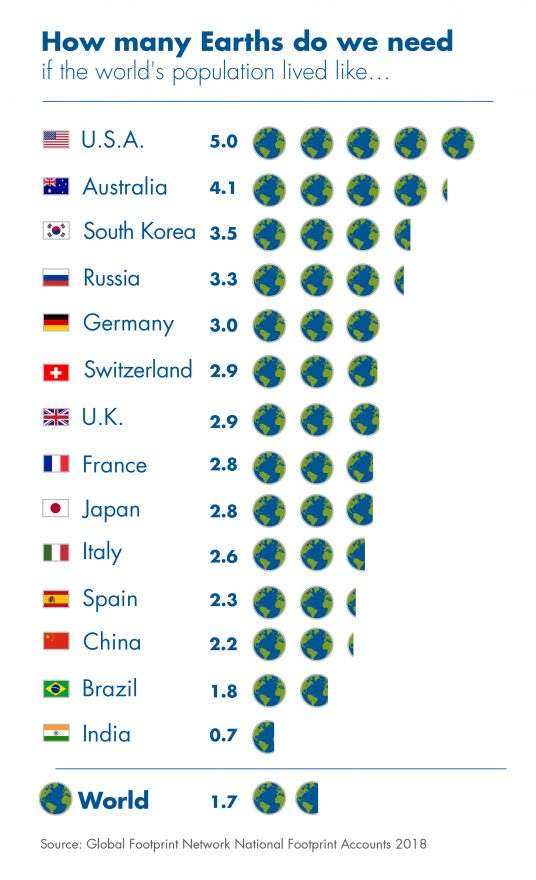
3. Taking public transportation
Taking public transportation reduces air pollution and improves road congestion . By using public transport, the number of cars on the roads decreases and less carbon dioxide is released into the atmosphere. Likewise, fewer vehicles reduce traffic jams on the roads.
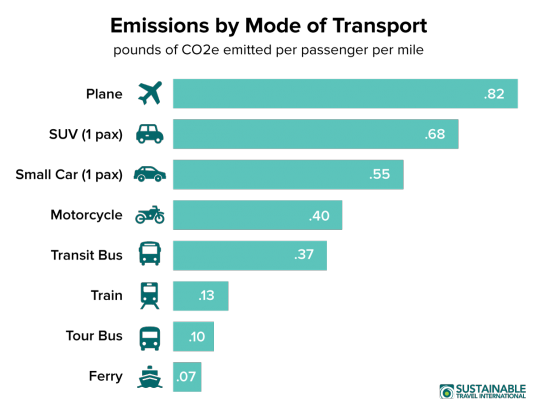
4. Respecting the culture of local communities
Respecting the culture of local communities conserves cultural and artistic heritage . The interaction with locals is one of the most rewarding things of sustainable travel and preserves traditions passed down from generation to generation. It is essential to respect traditions as they form the identity of the local community and create a sense of unity among people.

5. Buying from and supporting local businesses
Buying from and supporting local businesses empowers the local economy . But this is not all. Local products do not involve transportation, require less packaging, and create more jobs.
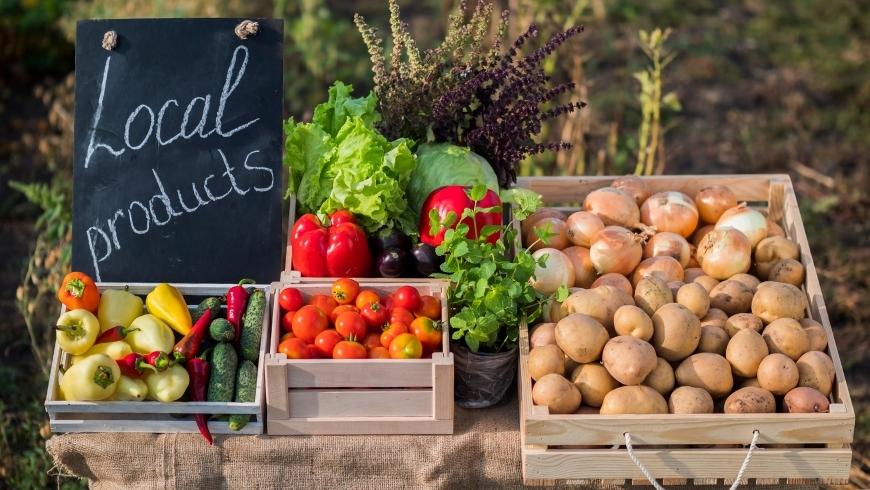
6. Traveling slow
Traveling slow minimizes the impact on the environment and saves money . For instance, choosing the train over other means of transportation both reduces the ecological impact and is a cheaper option. But this is not all. Traveling slow also allows you to enjoy the scenery along the way.
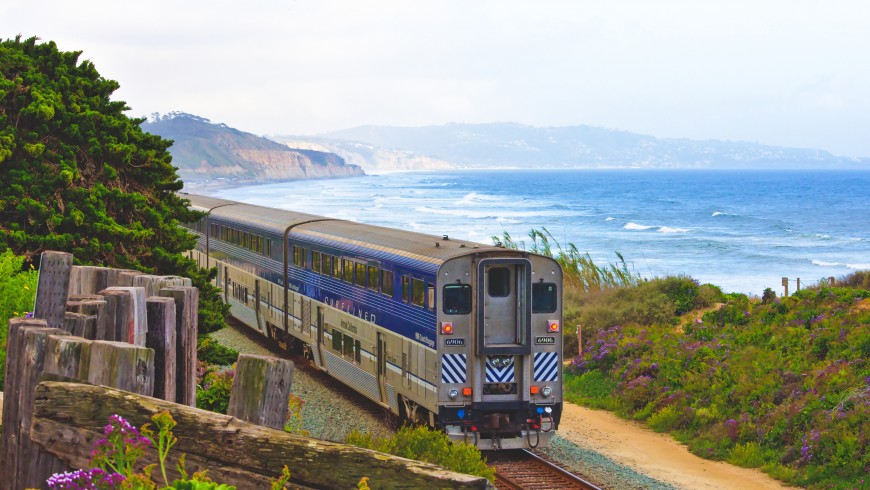
7. Saying NO to single-use plastic
Saying NO to single-use plastic reduces pollution . The production of plastic uses fossil fuels and therefore releases carbon dioxide into the atmosphere, contributing to climate change. In addition, 8 million tons of plastic end up in oceans every year (source: National Geographic ) putting marine life at risk .
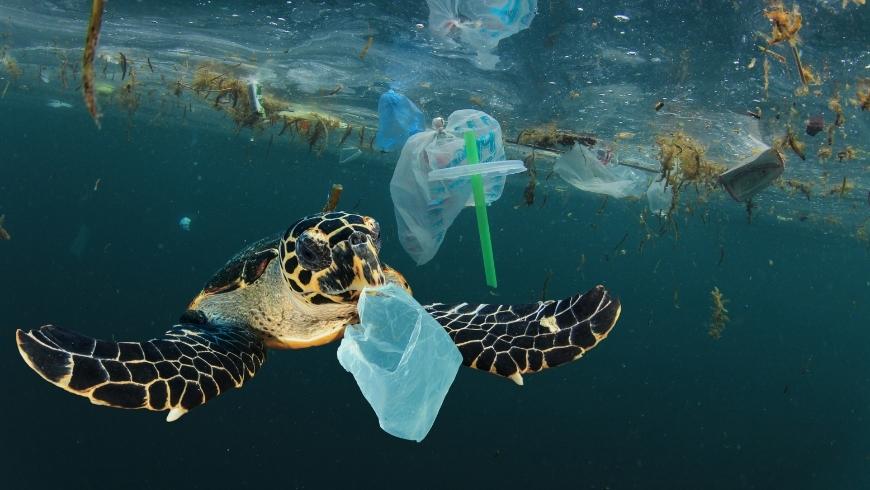
8. Eating local food
Eating local food ensures freshness and benefits local businesses . In fact, locally produced food does not require transportation, so it is fresh and nutritious. Furthermore, eating local products supports the local economy and contributes to increasing employment and income within a community ( tourism multiplier effect ).
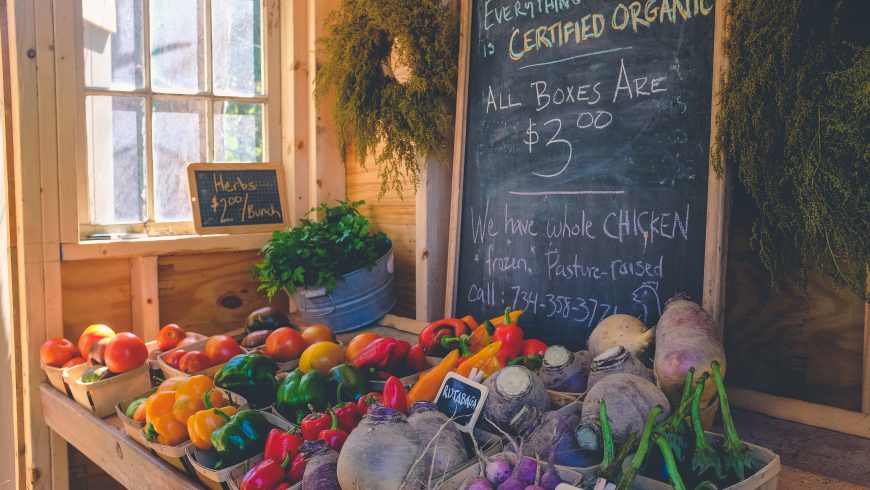
Infographic: what is sustainable travel?
To conclude, the following infographic summarizes the 8 good practices to adopt for your next sustainable travel .
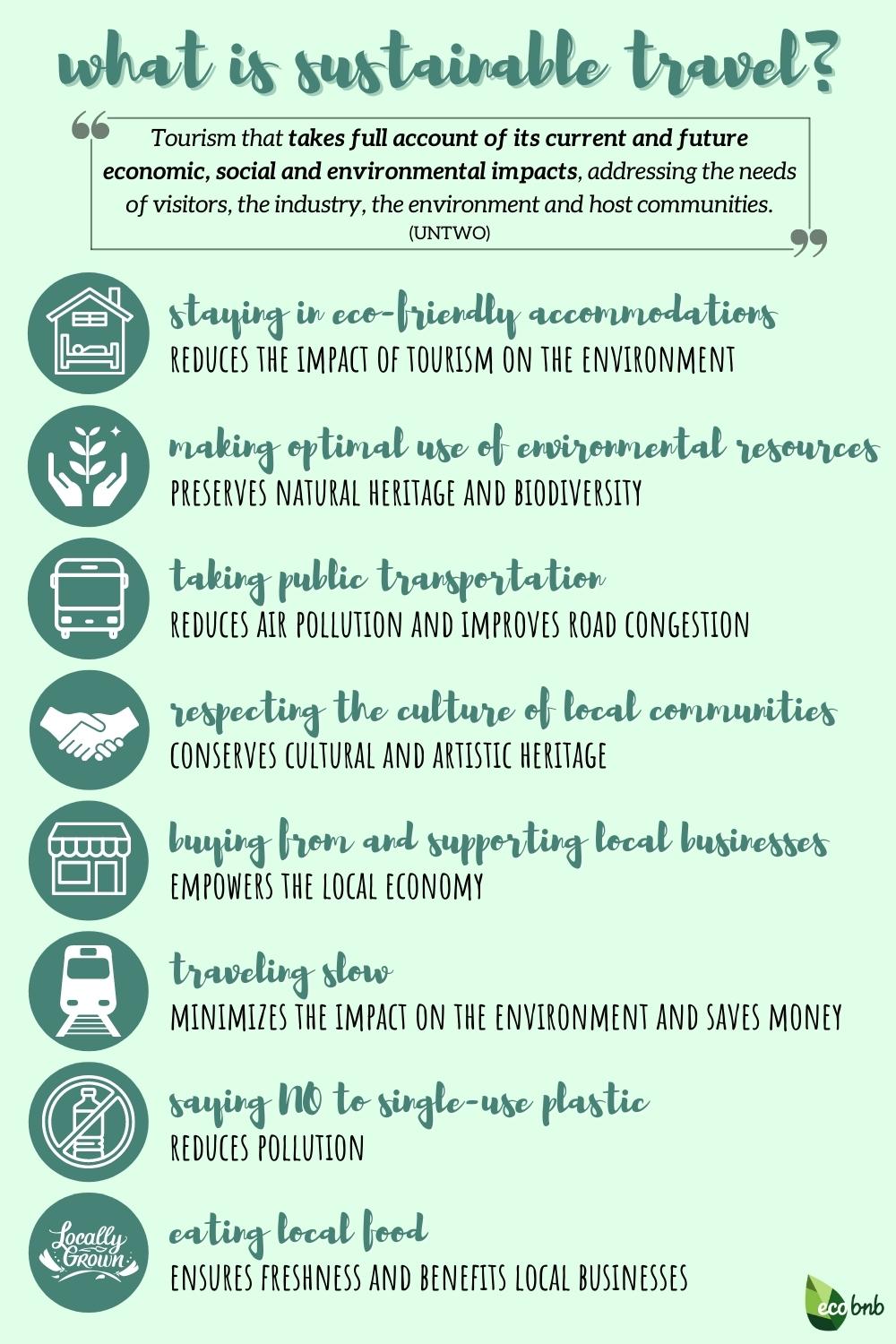
Cover image via Canva Pro
You might also like

Circular Economy and Tourism. The Ecobnb’s Guide
If you don’t know how Circular Economy and Tourism are related, find it out in the Ecobnb’s Guide. What’s about the Circular Economy? The Circular Economy, is an economic system that aims to reduce waste and to regenerate products and services. This innovative economic system is based on the philosophy of ‘Remake, Reuse, Recycle‘, so […]

Tips for responsible travelers
A walk through the sounds and colors of a Moroccan suq, an unforgettable excursion to Machu Picchu, a day out on the ocean by boat: our world is full of beauty and endless adventures that await us. So let’s travel and discover every corner of Earth, but let’s do it right, let’s become responsible travelers. In our blog […]

5 Ways To Be A More Sustainable Traveler
Traveling can bring so much positive impact to the world. It goes beyond just seeing new places, creating new experiences, and appreciating the culture and practices of others. It’s also a way to learn from the way other people across the globe live and bring home these experiences back home for your friends and family […]

6 Tips For Bringing Sustainability Into Your Travel
Travel these days is so easy. It can be inexpensive to travel any distance all across the globe, allowing you to visit places people never would have dreamed of visiting 100 years ago. But, the not so positive side to all of this is that traveling tends to hurt the environment and even the people […]
- English (UK)
- English (CA)
- Deutsch (DE)
- Deutsch (CH)
What is sustainable travel? Here's everything you need to know.
?w=50&)
Back to basics: sustainable travel
Travel that takes full account of its current and future economic, social and environmental impacts, addressing the needs of visitors, the industry, the environment, and host communities .
What does that mean in practical terms?
Traveling & the environment.
?)
" On our journey to Net Zero, precise, granular emissions data is really helpful to Aesop —because before we can act, we need to know what to focus on. Working with Travelperk has enabled us to understand our travel emission hotspots much better and map out the changes we can make that will have the biggest impact ."
- By replacing short journeys with trains instead of planes to reduce carbon emissions (in fact, our data shows that 1kg of C02 emitted by a train journey is equivalent to 22kg of C02 emitted by a flight journey). That's actually become a legal requirement in countries like France recently, with the UK and Germany soon to follow suit.
- Through carbon offsetting initiatives that have a positive impact on the environment and local communities. We're proud of our carbon offsetting projects at TravelPerk— check them out here !
- With travel industry players making decisive moves in the right direction. RyanAir, for example, has pledged to dispose of all single-use plastics in the next 5 years. InterContinental Hotels Group and Marriott International are completely phasing out single-use plastic toiletries bottles.
- With airlines looking for alternate sources of energy. Qantas, for example, has conducted pan-Pacific flights using a 10% biofuel blend as an alternative to the fossil fuels that are currently commonplace.
Social & economic dimension of sustainable travel
?)
What technology and trends are emerging to help travel become more sustainable?
Wrapping up
Did you find this article useful.
?)
Make business travel simpler. Forever.
- See our platform in action . Trusted by thousands of companies worldwide, TravelPerk makes business travel simpler to manage with more flexibility, full control of spending with easy reporting, and options to offset your carbon footprint.
- Find hundreds of resources on all things business travel, from tips on traveling more sustainably, to advice on setting up a business travel policy, and managing your expenses. Our latest e-books and blog posts have you covered.
- Never miss another update. Stay in touch with us on social for the latest product releases, upcoming events, and articles fresh off the press.
?)
Customer spotlight: Mambu on running a responsible business
?)
Top 10 sustainable hotels & chains for business travelers
?)
Biodiversity & business: why it matters
- Business Travel Management
- Offset Carbon Footprint
- Flexible travel
- Travelperk Sustainability Policy
- Corporate Travel Resources
- Corporate Travel Glossary
- For Travel Managers
- For Finance Teams
- For Travelers
- Thoughts from TravelPerk
- Careers Hiring
- User Reviews
- Integrations
- Privacy Center
- Help Center
- Privacy Policy
- Cookies Policy
- Modern Slavery Act | Statement
- Supplier Code of Conduct
The Evolution of Sustainable Travel

Saudi Tourism Authority + Skift
May 8th, 2024 at 11:20 AM EDT
In this episode of Skift Travel Spotlight podcast, Skift speaks with the Sustainable Hospitality Alliance at ITB Berlin about the power of innovation and education to build a more sustainable future.
Saudi Tourism Authority
This sponsored content was created in collaboration with a Skift partner.
Travel brands increasingly understand sustainability needs to be a fundamental part of their operations. However, putting this into practice can be difficult. In this episode, Glenn Mandziuk, CEO of Sustainable Hospitality Alliance, sat down with Kate Anderson, Creative Strategist at Skift, to discuss the evolving landscape of sustainable travel and the pivotal role collaboration and innovation play in shaping a more sustainable future for the industry.
🎧 Subscribe
Apple Podcasts | Spotify | Overcast | Google Podca sts
In this Podcast:
Changing Consumer Attitudes Towards Sustainability: Insights into the complexities behind consumer behavior and how the industry is navigating this dynamic to educate and empower travelers to make sustainable choices.
New Approaches to Sustainability: Behind the philosophy of net positive hospitality and innovative approaches to carbon footprint reduction, waste management, and social inclusion.
Hospitality Leadership: Why hospitality companies have a unique role to play in fostering sustainable behaviors among guests, even beyond check out.
Sustainability in Saudi Arabia: How starting from a blank canvas has enabled Saudi Arabia to integrate sustainability into its tourism development from the start.
This content was created collaboratively by Saudi Tourism Authority and Skift’s branded content studio, SkiftX .
Have a confidential tip for Skift? Get in touch
Tags: hospitality , neom , red sea global , saudi arabia , skift podcast , sustainability

- United Kingdom
- Deutschland

Booking.com Launches First-of-its-Kind Travel Sustainable Badge to Lead Industry in Showcasing a Wider Variety of Sustainable Stays
Pioneering travel sustainable program is more inclusive for all kinds of properties globally and makes finding credible sustainability information easier for customers.
TORONTO - NOVEMBER 15, 2021 - Booking.com, one of the world’s leading digital travel platforms, today announced the inaugural launch of its Travel Sustainable badge, a credible, globally relevant sustainability measure that will provide highly coveted information to travellers all over the world looking to make more sustainable travel choices. The badge is available to any kind of property that has implemented a combination of sustainable practices that meet the requisite impact threshold for their destination. Designed to be applicable to a wide range of property types, from apartments, B&Bs and holiday homes to hotels, resorts and even treehouses, and adaptable to local realities and considerations, the initiative is a first of its kind in the industry. The goal of the badge is to make credible recognition of impactful sustainability efforts attainable for more properties worldwide and to provide travellers with a transparent, consistent and easy-to-understand way to identify a wider range of more sustainable stays, no matter where they want to travel.
Making sustainable travel choices easier for everyone
The company’s ambition, alongside the Travalyst Coalition in which Booking.com is a Founding Partner, is to create a universal and transparent measure for sustainable property information, across the industry. As such, this first version of the Booking.com Travel Sustainable badge leverages the first set of attributes validated by the Travalyst Independent Advisory Group. The badge focuses on highlighting practices that are most relevant to a broad range of property types, as well as their high-impact potential, whether it is an apartment in Toronto, a homestay in India or a resort along the Gold Coast in Australia.
Building off the credible standards for sustainable accommodation already in place, Booking.com has collaborated with industry experts, including through Booking.com’s leading role within the Travalyst Coalition and other industry experts, to identify a set of the most impactful practices for a property to consider in five key areas: waste, energy and greenhouse gases, water, supporting local communities and protecting nature . This foundational framework is currently further broken down into 32 specific sustainability measures or practices that properties can implement, including everything from eliminating single-use plastic toiletries or switching to LED light fixtures to running on 100% renewable energy sources or investing a certain percentage of profits into local community and conservation projects.
For each one of these practices, Booking.com has also worked with reputable sustainability consultancy Sustainalize to develop a robust methodology that assesses these practices’ relative weight in the model. As these weights fully depend on the environmental and/or social impact of the practices, the model is fit for purpose to identify partners that pursue meaningful sustainability efforts. The calculation also considers the property’s location and accounts for its size, improving the model’s accuracy and applicability among the large variety of Booking.com’s partners. All these calculations come together, with each practice being weighted accordingly and taking local factors into account, to create an overall score for the property’s sustainability practices. While the goal has been to create a universal model, operating sustainably means different things in different markets. For example, water-reducing measures in an area prone to drought or sourcing renewable energy options in a country where that’s not yet widely available are weighted as being more impactful. More detailed information on how individual properties around the world have achieved the badge is available in this updated section of the Travel Sustainable Handbook on the Booking.com Partner Hub.
Properties that meet the required threshold for impact are receiving the first version of the Travel Sustainable badge, including those with a broad range of existing certifications and labels, for example those officially approved by the Global Sustainable Tourism Council (GSTC), Green Tourism and the EU Ecolabel. This framework approach and measurement methodology have been officially developed within the Travalyst Coalition and approved by the Travalyst Independent Advisory Group, and continue to be developed with further consultation and advice from the Global Sustainable Tourism Council (GSTC).
"Booking.com have methodically developed, tested, and refined this method drawing from GSTC's expertise and the globally-recognized GSTC Criteria," says GSTC CEO Randy Durband , "lending strong credibility to the framework that has been so carefully crafted."
“Building a truly sustainable travel industry will take time, coordination and concerted effort, but progress is possible through continued innovation, partner support and industry collaboration,” said Marianne Gybels, Director of Sustainability at Booking.com . “With our Travel Sustainable badge and program, we are recognizing the sustainability efforts of a broader range of properties around the world in a credible and transparent way for consumers. In addition to encouraging properties to strive towards achieving the Travel Sustainable badge, we believe it’s important to demonstrate that there is a spectrum for sustainability and that there is value in showcasing the growing number of properties that are at various stages on their individual sustainability journeys. Displaying the practices they have in place makes it easier for everyone to make a more informed and hopefully more sustainable choice for their next trip, no matter where they want to go. Thus also inspiring even more of our partners to take the next step to operate more sustainably.”
Accelerating the sustainability journey
According to a new study just released by EY Parthenon and Booking.com , despite emitting 264 million metric tons of CO2-equivalent emissions per year, representing 10% of the total annual emissions of the tourism industry, the accommodation sector has the opportunity to lead the way in making travel and tourism more sustainable. While significant investments are needed to reach net zero by 2050 (€768 billion), the research findings highlight that many accommodations have already implemented a range of carbon emissions measures. With adoption levels of the most efficient available technologies and practices varying between 30% and 70%, there is significant opportunity for improvement.
In addition, considering that 71%* of Canadian travellers state they want to stay in a sustainable accommodation in the upcoming year and with more than 28 million listings on Booking.com, the company sees a tremendous opportunity to showcase more of the impactful efforts its accommodation partners are taking on their important journeys to create more sustainable experiences, and in turn, make it easier for travellers to find a sustainable way to stay. The Travel Sustainable badge is also a concrete response to the 72% of travellers who expect the industry to offer more sustainable options. And with three-quarters (73%) indicating that they would be more likely to choose a specific accommodation if they knew it was implementing sustainable practices, the Travel Sustainable badge and program helps reward and further encourage all accommodation providers to take the next steps on their individual sustainability journeys, ultimately increasing the overall amount of sustainable accommodation options available.
During this first phase of launch, the Travel Sustainable badge and an overview of individual property sustainability efforts will initially be visible to travellers on property pages across the Booking.com app and website globally. As the rollout continues, the Travel Sustainable icon will also start to appear on property listings on the search results page over the coming weeks, along with a Travel Sustainable filter to help travelers identify more sustainable options from the beginning of their search experience on Booking.com.
The list of measurable sustainability practices will continue to evolve and expand over the coming months, becoming increasingly locally relevant in terms of measurement, while maintaining a necessary level of global consistency. As additional practices are added over time, the plan is to also begin aligning this sustainability initiative with other Booking Holdings brands, as well as with other Travalyst coalition partners to ensure consistency across multiple platforms and enhanced sustainable choice for consumers.
As part of the Travel Sustainable program, Booking.com continues to share guidance, insights and best practices with property partners via various educational opportunities, including handbooks and dedicated content on the Booking.com Partner Hub . For more information on sustainability at Booking.com, please visit sustainability.booking.com .
CONTACT DETAILS
For further information, contact the Booking.com Canada Press Office;
Annie Hennessey | [email protected]
About Booking.com :
Part of Booking Holdings Inc. (NASDAQ: BKNG), Booking.com’s mission is to make it easier for everyone to experience the world whenever it’s safe to do so again. By investing in the technology that helps take the friction out of travel, Booking.com seamlessly connects millions of travelers with memorable experiences, a range of transportation options and incredible places to stay - from homes to hotels and much more. As one of the world’s largest travel marketplaces for both established brands and entrepreneurs of all sizes, Booking.com enables properties all over the world to reach a global audience and grow their businesses. Booking.com is available in 44 languages and offers more than 28 million total reported accommodation listings, including more than 6.6 million listings of homes, apartments and other unique places to stay. No matter where you want to go or what you want to do, Booking.com makes it easy and backs it all up with 24/7 customer support.
Follow us on Twitter and Instagram , like us on Facebook , and for the latest news, data and insights, please visit our global media room .
Founded by The Duke of Sussex in partnership with Booking.com, Skyscanner, Trip.com Group, Tripadvisor, Visa, and newly-joined by Google, Travalyst’s ambition is to unlock the impact of travel for good. The aim is to drive forward a new, more responsible model for travel that builds upon the work of existing standards, with the goal of making them easier to understand for consumers and businesses, and in turn, implementing and scaling them across the broadest possible range of travel service providers. Travalyst is continuing to develop a world-first system that can deliver a uniform, industry-wide sustainability framework across multiple platforms; to ultimately enable travellers to make more sustainable choices. Find out more at www.travalyst.org .
Methodology
*Research commissioned by Booking.com and independently conducted among a sample of 29,349 respondents across 30 countries and territories (1,000 from USA, 1,007 from Canada, 1,000 from Mexico, 964 from Colombia, 1,000 from Brazil, 1,000 from Argentina, 999 from Australia, 941 from New Zealand, 1,001 from Spain, 1,000 from Italy, 1,000 from France, 1,000 from UK, 1,000 from Germany, 1,003 from Netherlands, 986 from Denmark, 1,000 from Sweden, 997 from Croatia, 1,005 from Russia, 1,003 from Israel, 1,000 from India, 1,000 from China, 1,005 from Hong Kong, 968 from Thailand, 963 from Singapore, 1,000 from Taiwan, 1,005 from Vietnam, 1,000 from South Korea, 1,000 from Japan, 1,002 from South Africa and 500 from Kenya ). In order to participate in this survey, respondents had to be 18 years of age or older, had to have traveled at least once in the past 12 months and must be planning to travel in 2021, and be either the primary decision maker or involved in the decision making of their travel. The survey was taken online and took place in March 2021.

IMAGES
COMMENTS
How we built Travel Sustainable. On 15th November, 2021, Booking.com launched a first-of-its-kind Travel Sustainable programme. The programme, which has been in development since early 2020, defines the standard for a sustainable property on our product. This interview is with two of the people leading the development of the Travel Sustainable ...
AMSTERDAM, 15 NOVEMBER 2021 - Booking.com, one of the world's leading digital travel platforms, today announced the inaugural launch of its Travel Sustainable badge, a credible, globally relevant sustainability measure that will provide highly coveted information to travelers all over the world looking to make more sustainable travel choices. The badge is available to any kind of property ...
The Travel Sustainable Levels were designed to better recognize and support the efforts and investments on a property's sustainability journey - whatever stage they may be at. While all eligible partners received the same badge, Booking.com recognized each eligible partner's sustainability efforts at one of three different levels, or, for ...
NORWALK, CT - November 30, 2022 - Today, Booking Holdings, the world's leading provider of online travel and related services, announced the expansion of its Travel Sustainable program to relevant brands across the Booking Holdings family. The news marks the company's delivery on its commitment to launch its first-of-its-kind program ...
Booking.com has unveiled an array of new product features in celebration of the one year anniversary of its Travel Sustainable program, introduced in 2021 to provide travellers with transparent and credible information to make more mindful choices for their trips. With the ongoing aim to recognize the efforts of properties to operate more sustainably and…more ›
(Shared from globalnews.booking.com)Latest research from Booking.com reveals how the 'pandemic effect' could finally tip sustainable travel intent into impactful action. • 83% of global travelers think sustainable travel is vital, with 61% saying the pandemic has made them want to travel more sustainably in the future. • Almost half (49%) still believe that in 2021, there aren't ...
Sustainability is a core component of Booking.com's mission to make it easier for everyone to experience the world, and over the past decade, we have been shaping our work in this space, most recently focusing on how we make more sustainable travel choices easier for everyone. We believe that certifications and eco-labels represent the ...
Booking.com Launches Travel Sustainable Badge to Lead Industry in Showcasing a Wider Variety of Sustainable Stays. 15 November 2021 - Booking.com, one of the world's leading digital travel platforms, announced the inaugural launch of its Travel Sustainable badge, a globally relevant sustainability measure that will provide highly coveted ...
Booking.com's Travel Sustainable Programme is a key pillar of the company's climate action commitments. For more information on Booking.com's Travel Sustainable programme please visit sustainability.booking.com, as well as for more detail on the company's Climate Action Plan as part of Booking Holdings Inc. (NASDAQ: BKNG). ###
Sustainable travel is about travelling in a way that's sensitive to the climate and nature emergencies while ensuring that the wellbeing of the places we visit gain long-term benefit from us ...
According to an extensive sustainable travel research report conducted by Booking.com, it has been determined that 65% of Canadian travelers want to travel more sustainably over the coming 12 months. Booking.com's newly released research features insights that have been gathered from more than 33,000 travelers across 35 countries and territories.
Asking questions — both while you're traveling and, more important, before you book — is one of the most powerful things that travelers can do, said Gregory Miller, the executive director of ...
More sustainable travel is an investment for the world.". These shifts have the potential to make a difference. According to the World Travel & Tourism Council, 8 to 11 percent of global carbon dioxide emissions are linked to travel and tourism (mostly due to the commute to and from the destination). When considering sustainable travel, it ...
For travelers, sustainability is the word—but there are many definitions of it. Most people want to support sustainable tourism, even though the concept remains fuzzy. The word "overtourism ...
Sustainable Travel: 8 Best Practices. Let's find out 8 easy ways to travel eco-friendly: 1. Staying in eco-friendly accommodations. Staying in eco-friendly accommodations reduces the impact of tourism on the environment. From renewable energy production to bio-architecture, eco-friendly lodgings focus on preserving the environment and have ...
NEW YORK, NOVEMBER 15 2021 - Booking.com, one of the world's leading digital travel platforms, today announced the inaugural launch of its Travel Sustainable badge, a credible, globally relevant sustainability measure that will provide highly coveted information to travelers all over the world looking to make more sustainable travel choices.The badge is available to any kind of property that ...
So, what actually is sustainable travel? According to the UNWTO, it's: Travel that takes full account of its current and future economic, social and environmental impacts, addressing the needs of visitors, the industry, the environment, and host communities. UNWTO. Sure, it might be a bit of a mouthful. But, in essence, it's all about traveling ...
Closing the gap, step by step. In connection, Booking.com is currently displaying over 30 certifications officially approved by the Global Sustainable Tourism Council (GSTC), Green Tourism and the EU Ecolabel, as well as multiple hotel chain sustainability programs. The company is sourcing this information directly from the certification bodies and displaying it on the property pages of ...
Pioneering Travel Sustainable program is more inclusive for all kinds of properties globally and makes finding credible sustainability information easier for customersLONDON, 15 NOVEMBER 2021 - Booking.com, one of the world's leading digital travel platforms, today announced the inaugural launch of its Travel Sustainable badge, a credible, globa...
Skift and Sustainable Hospitality Alliance discuss the evolving landscape of sustainable travel the pivotal role of collaboration and innovation in shaping a more sustainable future for the industry.
Amsterdam, Netherlands - 17 April 2019 - As the world gears up to mark Earth Day on 22 April, Booking.com, one of the world's leading digital travel platforms, has released findings from its annual sustainable travel report. Research reveals almost three quarters (72%) of travelers believe that people need to act now and make sustainable ...
TORONTO - NOVEMBER 15, 2021 - Booking.com, one of the world's leading digital travel platforms, today announced the inaugural launch of its Travel Sustainable badge, a credible, globally relevant sustainability measure that will provide highly coveted information to travellers all over the world looking to make more sustainable travel choices. The badge is available to any kind of property ...